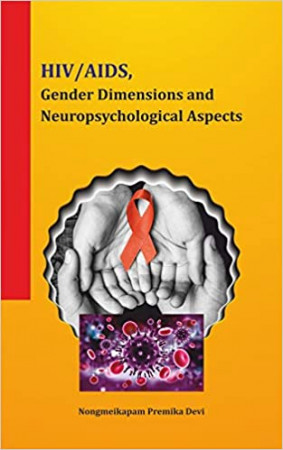HIV/AIDS, Gender Dimensions and Neuropsychological Aspects
Acquired Immune Deficiency Syndrome (AIDS) is a disease caused by a virus named Human Immunodeficiency Virus (HIV). The disease is characterized by immunosuppression which leads to a spectrum of clinical manifestations that include opportunistic infections, secondary neoplasms, and neurologic manifestations. The clinical features of HIV infection range from asymptomatic infection to severe clinical illness and AIDS. HIV/AIDS in India came into public view in 1986 with detection of first few cases of HIV in Chennai and first AIDS case in Mumbai in 1987. The current scenario in the country is alarming and the situation is grim though the overall prevalence of the disease is still low as compared to many other countries in South East Asia. HIV/AIDS is a major concern and has only recently attracted the attention of psycho-social research. Knowledge of effective ways of coping with HIV is critical to help individuals with HIV to maintain the best possible psychological and physical well-being. HIV has huge impact on cognitive function and is also associated with depression and anxiety. However, very few studies have been conducted on the relationship between neuropsychological functi
Get it now and save 10%
BECOME A MEMBER







Bibliographic information